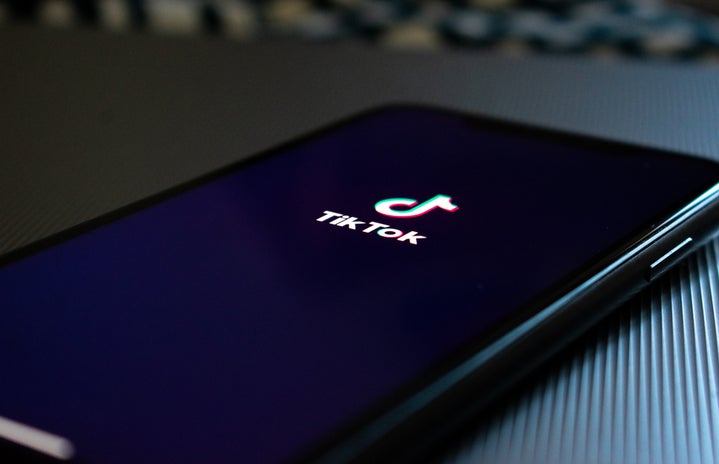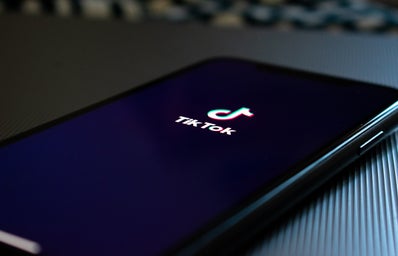TikTok has over one billion users and a unique for you page for each user. It is likely that you may not have been exposed to a more niche video trend: corecore. My “For You Page” is filled with mostly cat and fashion videos, but occasionally I’ll come across a video so random and intensely meaningless that it snaps me out of my mindless scrolling.
Briefly, what is corecore? I’ve linked some examples throughout this article but in words: videos that are intense and all over the place but also strangely calming. Corecore originated as a satire on all the specific aesthetics created on TikTok that are marked with the suffix “-core.” Originally, they were random pieces of media compiled and layered on top of each other to make the most core of cores. Over the past few months, they’ve evolved into optimistic nihilist pieces of art (dare I say art?). The well-made ones can call attention to social issues that plague everyday life. Despite this, the structure of a corecore video often leaves you feeling hopeful. It starts with web-weaving news clips, memes, and most often other TikToks. Then they’ll shift into something more peaceful like TikTok’s of friends laughing and clips of nature.
The meaning of corecore is in its own meaningless. When you scroll through hundreds of videos in one sitting, barely absorbing the information and emotions of one video before swiping to the next, they all blend together and lose the meaning they might have had if viewed independently. You’re just scrolling and feeling vague shadows of true emotions warped by each swipe. A well-made corecore video breaks you out of the endless scroll by calling attention to the ingenuity of it through its own randomness. With no coherent aesthetic like the majority of successful TikToks posted, it creates its own meaning.
I don’t think I’m alone in saying that there’s a unique feeling of being alive right now. Not to get all sociology major on you, but we live in the era of late capitalism that renders the average working person as a simple cog in the machine. The climate is changing at unprecedented rates thanks to a select few of the top companies. The middle-class dream is practically dead, as three billionaires hold more wealth than the bottom 50% of the country combined. Then there’s the internet, which exposes us to all this information at once. It makes us feel useless for not doing anything about the million problems in the world right now. That is the general feeling I get from the world right now, the air of helplessness and from that, hopelessness. What kind of difference can I make when all this is happening? Is it worth it to even try? How are you supposed to be happy when you’re constantly exposed to horrible events? It’s numbing.
I believe that Gen-Z is the first generation to show signs of this particular kind of numbness. Like the silent generation of the mid-20th century, nihilism inevitably becomes the popular philosophy when the world feels hopeless. There’s something new this time around though, a much stronger emphasis on absurdism. This is much easier to understand. For example, every day you likely commit the act of scrolling from a cute cat video directly into a cancer survivor story and then into an activist infographic. Quite frankly there is no other way to put it except absurd! Corecore is the amalgamation of the two philosophies into an absurd video that questions the meaninglessness of the world. Though sometimes there’s something more in a well-made corecore video, something that actually makes you feel real. In meaninglessness there is meaning, and in smallness there is beauty.
This is the definition of optimistic nihilism, the philosophy that I think will reign supreme as the internet and in turn, the world, becomes more absurd. In turn, the world becomes more absurd. I feel more empty every time I open social media. I think as a generation we’re relearning what it means to be human after a life of growing up through the internet. Being human is about real connection and being with the people you love in person. Enjoying the small parts of life that can’t be commodified through social media. We often overlook going to the market, savoring a warm drink, or simply feeling the sun on our faces. For a lot of young people, I think the underlying belief is that this is all there is left for us.
This is why I love corecore, it encapsulates this message of finding meaning through hopelessness. It makes you pause and appreciate the innate beauty of being alive. Yes, the world can suck, and yes it feels hopeless, but it’s up to you to find hope through the meaning you create.
Can’t get enough of HC UMass Amherst? Be sure to follow us on Instagram, listen to us on Spotify, like us on Facebook, and read our latest Tweets!



